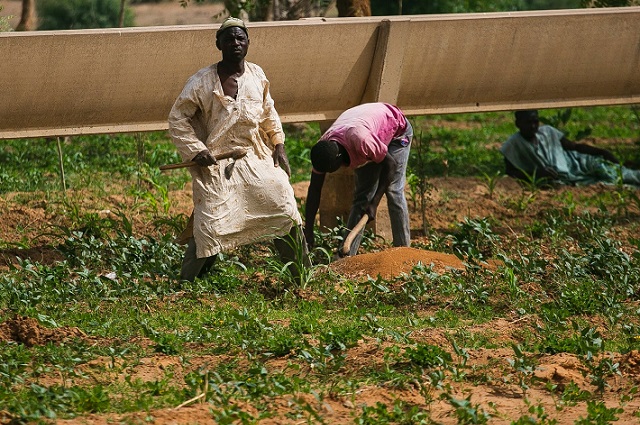There’s a spot in my garden, about twelve square feet, where nothing grows.
I’ve spent too much money on different kinds of plants and untold hours reworking the soil. Still nothing—and I mean nothing—survives there for more than a season. Even deep-rooted weeds can’t handle it. The best explanation I can come up with is that decades ago someone cursed that part of the ground or back in the day an angry homesteader tried to salt someone else’s land and now I’m stuck with the consequences.
Nevertheless every spring, like Charlie Brown trying to kick the football, I keep going back to the spot and trying again. It’s not just that I’m stubborn. It’s because I’m a gardener.
Most Working Preachers I know will understand.
Nineteen people commented on how meaningful your last sermon was, but it’s Person Twenty, who wrote the critical email, who keeps you awake at night. Sometimes that kind of response motivates you, and sometimes it dumps salt into your creative process.
You put sweat and tears into your preaching week after week and nothing seems to happen. You’ve devised creative ways to do church digitally. You even taught yourself video editing. You preached repeatedly about systemic racism and beloved community to a congregation you know doesn’t want to hear it, or to one that thinks it’s already addressed the problem. Where are the results of all that effort and ingenuity? Didn’t Jesus say elsewhere that the harvest would be plentiful?
In these times it’s exhausting to work in even a verdant garden. It’s deadening to toil where you see no growth.
Everyone’s tired in July 2020. Everything is harder now.
Hear this as me applauding your toil and commitment, and not as me telling you to suck it up, Buttercup: Christian ministry was designed to engage difficult work. And so you keep going back—not just with sermons that will water the lush and responsive ground—but with the ones that you hope will sink roots and pry open the dead earth. It’s not just your stubbornness that makes you return to the most challenging terrain. It’s because you’re a preacher.
You’re drawn to the struggle. You know how much it matters.
That means it does the hard-working preacher no favors when the lectionary skips over Matthew 13:10-17, the verses in which Jesus describes why he speaks to the crowds in parables.
I suppose the lectionary presumes it is giving you a gift by hiding the verses that raise the prospect that some soils will never open up. Those verses make us wonder whether God is fair. Whether the good news is nonsense. Whether we have a basis to hope for the kind of growth and progress that someone told us are characteristic of truly vibrant or successful ministry.
Those can be scary topics to wonder about. And I know that too many preachers have allowed those verses to terrorize congregations. And we could spend days talking about how interpreters have handled these verses. It’s complicated.
But without those verses, this ominous parable about seeds and soils can be made to be about nearly anything. I’ve seen people wrench the parable out of its Gospel context to aggrandize the real “sowers” in our midst. (The parable is not about that person. Nor about the virtues of taking risks.) I’ve seen people use it to raise money. (The parable is not about venture capital. Nor about stewardship.)
Some of those gross (mis)interpretations are easy and enticing places to go, and they make for self-serving interpretations or sentimental sermons. But Matthew (like its primary source, Mark) uses this parable and an adaptation of Isaiah 6 to lead us back into the rough patches—into hard questions about our faith and our craft.
- Why is the good news like secrets (Greek: mysteria)?
- What make a “people’s heart” thick and unable to understand?
- What hope is there when people’s senses—the things they rely on to navigate their way through the world—fail them?
- What responsibility to the wider world do disciples have, if indeed they are among those who truly perceive what is really going on? And how would one know that they are one of those disciples in the first place?
If those questions are the landscape you’ve been called to work in, you’re going to need good tools. You’re going to need the whole story—really the whole book—to get at those kinds of questions if you want them to blossom into truly good news. And you’re going to need time.
Jesus might have offered this parable and his interpretation to counsel his followers about choosing easier paths. He might have talked about knowing when to cut your losses or when to shake the dust off your sandals. He might have offered a gospel of aphorisms or self-congratulations.
He doesn’t. He doesn’t say to stop preaching or to stop sowing, either.
Instead, he uses the parable to name the forces that are actively working against “the word of the kingdom” that you preach: evil, persecution, backlash, worry, and wealth. Do not underestimate any of these killers. They do not yield ground without a fight. They make the work hard.
Good thing you’re up for the struggle. Remember that he hasn’t placed you in that spot alone.
Matt

